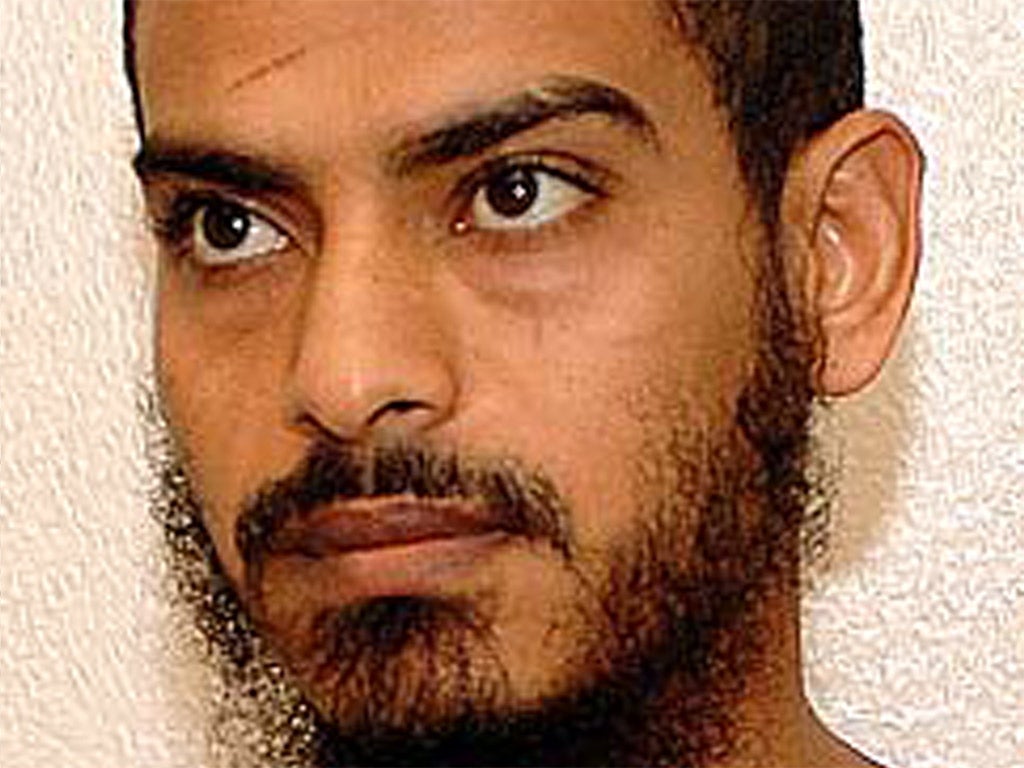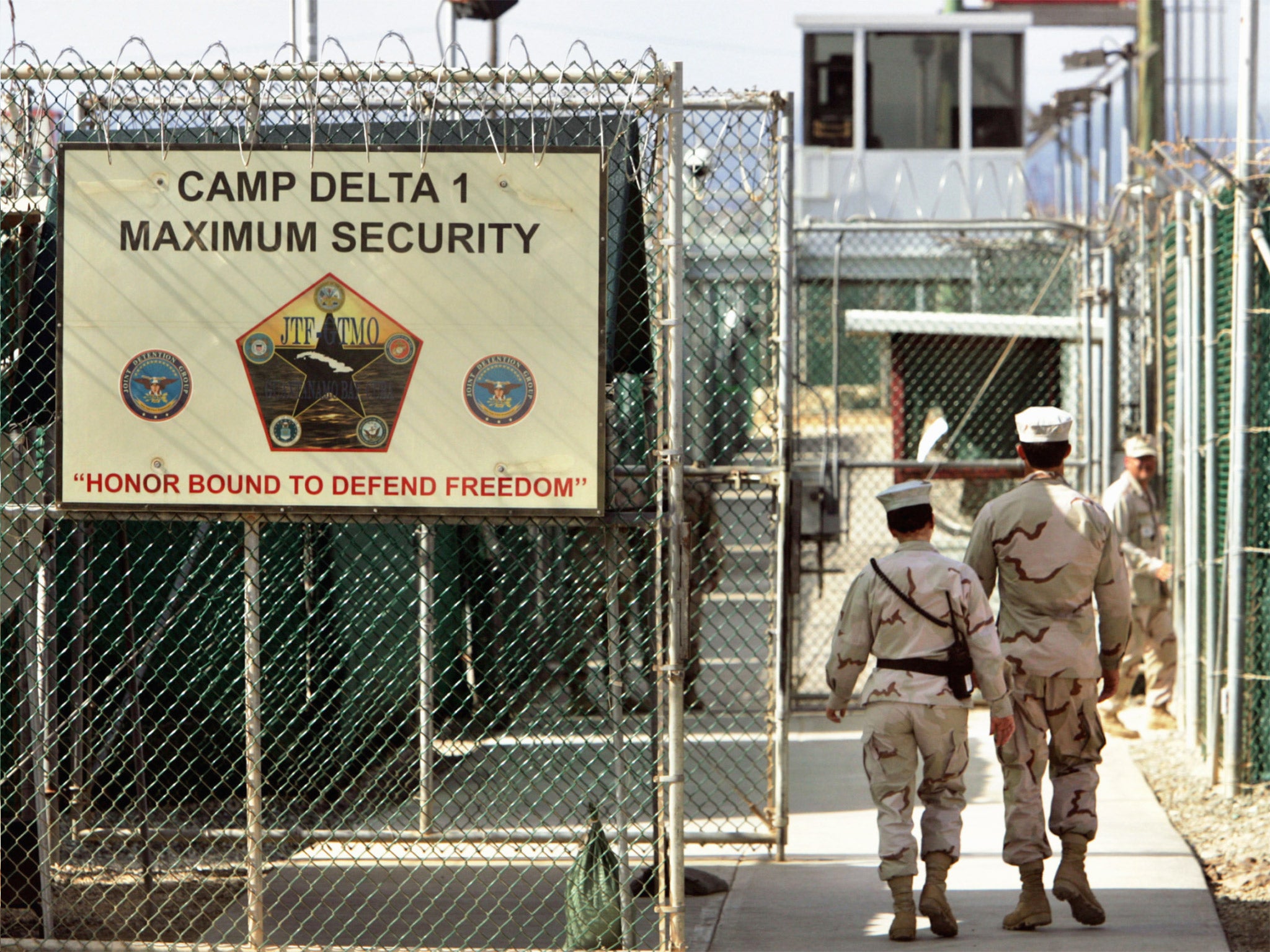Mustafa al-Aziz al-Shamiri: US admits to case of mistaken identity over 'top-ranking al-Qaeda fighter' held at Guantanamo Bay for 13 years
Officials concede he had been confused with more significant fighters who had a similar name

Your support helps us to tell the story
From reproductive rights to climate change to Big Tech, The Independent is on the ground when the story is developing. Whether it's investigating the financials of Elon Musk's pro-Trump PAC or producing our latest documentary, 'The A Word', which shines a light on the American women fighting for reproductive rights, we know how important it is to parse out the facts from the messaging.
At such a critical moment in US history, we need reporters on the ground. Your donation allows us to keep sending journalists to speak to both sides of the story.
The Independent is trusted by Americans across the entire political spectrum. And unlike many other quality news outlets, we choose not to lock Americans out of our reporting and analysis with paywalls. We believe quality journalism should be available to everyone, paid for by those who can afford it.
Your support makes all the difference.When Mustafa al-Aziz al-Shamiri was captured close to Mazar-e-Sharif in 2002 the US was in its second year of a long and bloody war in Afghanistan. Suspected terrorists were everywhere, and the Yemeni was thought to be an al-Qaeda courier and trainer with links to the highest echelons of the organisation.
He was taken from Afghanistan to Guantanamo Bay where, for the past 13 years, he has been held as an enemy combatant. Since his capture, Shamiri has been jailed at Guantanamo as an indefinite detainee, considered too dangerous to be released, but with insufficient evidence to bring him to trial. Now it has emerged that Shamiri was no terror mastermind and had, in fact, been a victim of mistaken identity.
According to an official “detainee profile” made public this week, the 37-year-old Yemeni was an Islamist foot soldier who fought in “several jihadist theatres” including Afghanistan, and associated with al-Qaeda members. But US officials said they were wrong to consider him a senior al-Qaeda operative, and that he had been confused with more significant fighters who had a similar name.
The unclassified document suggested Shamiri had fought in Bosnia in 1995 and in Yemen’s civil war the following year, before joining Taliban forces in Afghanistan in 2000, where he resisted the 2001 invasion by the US and its allies.
“It was previously assessed that YM-434 [Shamiri] was an al-Qaeda facilitator or courier, as well as a trainer, but we now judge that these activities were carried out by other known extremists with names or aliases similar to YM-434’s,” the profile said.
On Tuesday, he appeared before the Periodic Review Board, a panel of US officials that decides which prisoners should be released from Guantanamo, as President Barack Obama’s administration seeks to finally close the prison.
In recent years, the US has steadily been sending Guantanamo detainees back to their home nations or to third countries. Shamiri is one of 107 prisoners remaining at the military base in Cuba, 48 of whom have already been approved for release and are awaiting transfer. Of those cleared for release, 39 are Yemeni, and continue to be detained because the US believes Yemen is too unstable to receive and house former Guantanamo inmates.
Mr Obama pledged to scrap Guantanamo during his 2008 presidential campaign and, shortly after taking office in January 2009, he signed an executive order to close the facility within a year. Yet more than six years later, his administration has managed only to reduce the number of prisoners held there. Mr Obama said last month that he expected the Guantanamo population to be fewer than 100 by early 2016, down from almost 250 at the beginning of his presidency.
However, the White House recently rejected a Department of Defence plan for closing the prison and building an alternative facility in the US, after the Pentagon projected its cost at more than half a billion dollars. The plan reportedly called for a one-time capital investment of approximately $350m (£235m) to build a new facility on the US mainland, which would then cost a little less than $300m per year to maintain. The current cost of operating Guantanamo is around $400m.
According to a report by The Wall Street Journal, which cited administration officials, Mr Obama demanded revisions to the plan, which he rejected as too expensive, during a meeting with US Defence Secretary Ashton Carter on 10 November. Guantanamo also proved to be a major sticking point between Mr Obama and Mr Carter’s predecessor, former Pentagon chief Chuck Hagel, who disagreed with the transfer of detainees from the prison to other countries.

Last month, Congress passed a defence bill that included a provision banning Guantanamo detainees from being transferred to the American mainland – something the White House has long deemed essential if the prison is ever to be closed. The President faces opposition to Guantanamo’s closure from both parties in Congress, and his rejection of the Pentagon plan has forced a further delay to proposals which the White House hopes to put before lawmakers before the end of his second term.
If Congress refuses to alter its position, Mr Obama has not discounted the possibility of using his executive authority to close the prison, which he describes as both a recruitment tool for terrorists and a drain on taxpayer dollars.
“Guantanamo continues to serve as a recruitment tool for jihadists, it is something we need to stop,” Mr Obama said this week in an interview with the French news outlet iTele. “I will make this argument until my very last day as president.”
Should his release be approved, it is unlikely that Shamiri would be transferred to Yemen. His US-appointed representatives said in a written statement to the Periodic Review Board that he would gladly resettle in whichever country would accept him.
“He has demonstrated a consistent positive attitude towards life after Gitmo,” the statement said. “He has a strong desire to obtain an education in order to provide for a future spouse that his family has already located for him.”
Shamiri has taken English and art classes during his time as a detainee, as well as learning carpentry and cooking skills, his representatives said.
They added: “Mustafa does have remorse for choosing the wrong path early in life. He has vocalised to us that while he cannot change the past, he would definitely have chosen a different path. He wants to make a life for himself.”
Join our commenting forum
Join thought-provoking conversations, follow other Independent readers and see their replies
Comments